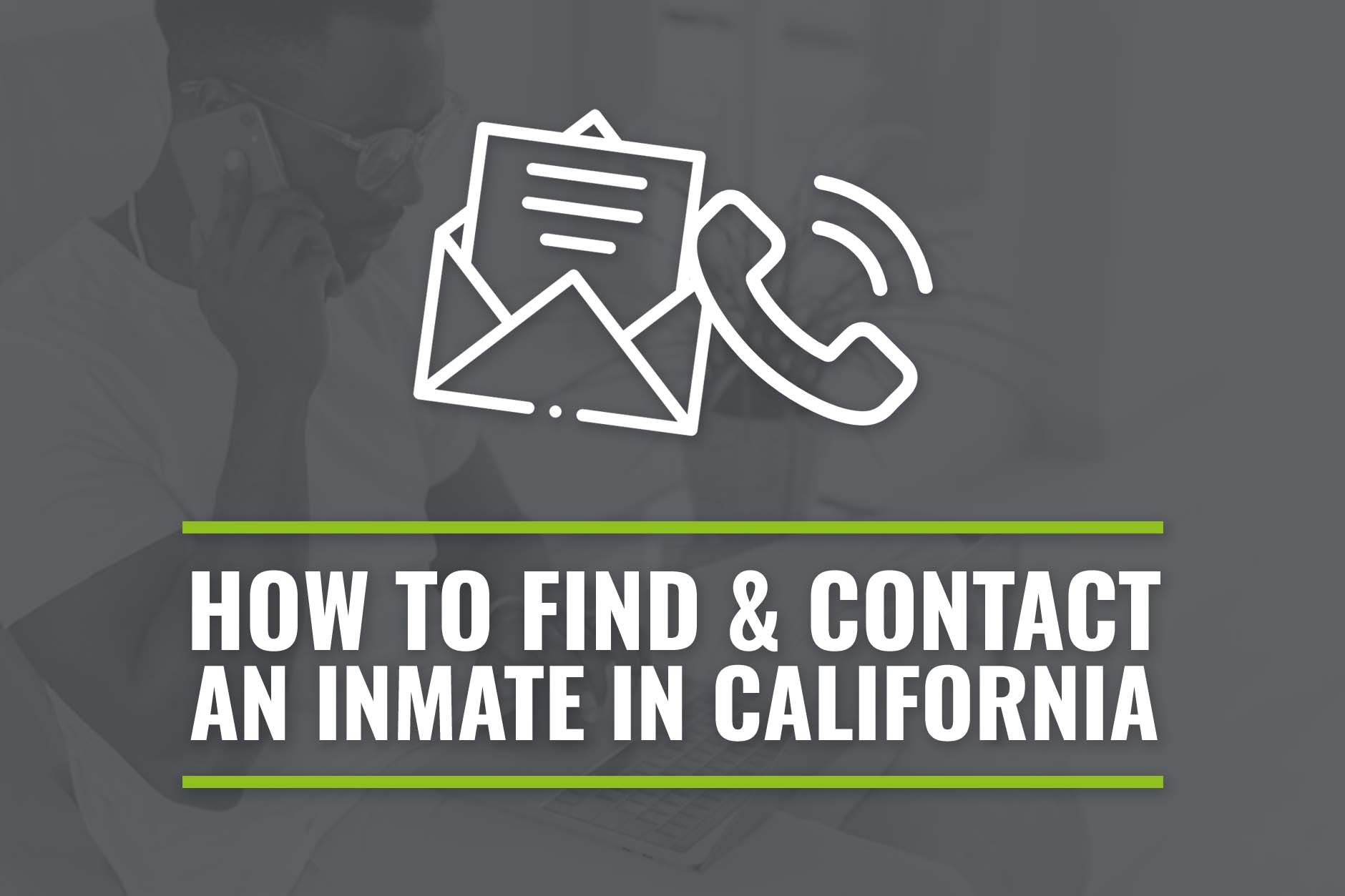Table of Contents
Quick Summary
To contact a resident in a California correctional facility you first have to identify the type of facility as each has distinct procedures. Use the California Department of Corrections and Rehabilitation (CDCR) Inmate Locator for state prisons and check sheriff’s department websites for local and county jails. To send mail to a resident, include the individual’s full name, CDCR number, and the correct facility address, adhering to specific guidelines. Residents in state prisons can make free outgoing calls, but they must initiate contact, typically limited to 15 minutes. There are services that allow electronic messaging and fund transfers. You can schedule visits in advance, following the facility’s rules on visitor checks, hours, and dress codes.
The information on this page does not constitute legal advice.
Navigating the process of locating and contacting inmates in California can be complex and frustrating, especially for those unfamiliar with the penal system. This guide will help you understand the steps to connect with inmates, focusing mainly on the Southern California regions of Carlsbad and San Diego. Whether your loved one is in a local jail, a state prison, or a federal facility, understanding the different types of correctional institutions and how they operate is the first step toward making contact.
Rubin Law Office provides criminal defense legal services to residents throughout San Diego County. Attorney David Rubin can help defend your loved one if they are facing criminal charges. David handles a variety of criminal cases from weapons charges to drug charges and theft charges.
Understanding Different Types of Jails and Prisons
Different facilities house inmates based on their legal status and the severity of their offenses. Each type of facility operates under different rules, provides different programs, and serves different legal functions, affecting everything from visitation rights to the available communication methods.
Here’s a brief overview of the types of correctional facilities in California:
- Local Jails: Managed by city or county authorities, local jails hold individuals awaiting trial or serving short sentences. These facilities have a high turnover rate and are generally smaller than state or federal prisons.
- Sheriff’s Departments: Sheriff’s departments, such as the San Diego County Sheriff’s Department, oversee several local facilities, including managing bookings and housing inmates. They play a crucial role in coordinating different jails within the county.
- County Jails: Similar to local jails but on a larger scale, county jails, like the San Diego Central Jail, hold inmates serving one year or less and those awaiting transfer to state or federal prisons. These facilities often provide educational and rehabilitation programs.
- State Prisons: Operated by the California Department of Corrections and Rehabilitation (CDCR), state prisons house inmates serving longer sentences. Facilities like the Richard J. Donovan Correctional Facility offer various levels of security and specialized units for healthcare, mental health services, and vocational training.
- Federal Prisons: Managed by the Federal Bureau of Prisons, these prisons, such as the Metropolitan Correctional Center in San Diego, accommodate individuals convicted of federal crimes. These prisons range from minimum to high-security levels based on the nature of the offenses and the inmates’ security needs.
How to Use Inmate Locator Tools
Inmate locator tools are essential for finding where a friend or family member is incarcerated, especially as individuals can be transferred between facilities. To use these tools effectively, make sure you have accurate personal information about the individual in custody, including their full legal name, date of birth, and, if possible, the facility’s inmate identification number. This helps filter results, particularly in regions with high inmate populations like Southern California.
Local Jail Lookups
Most sheriff’s departments provide online search tools for those in local jails. For instance, the San Diego Sheriff’s Department allows you to search for individuals by name or booking number, providing details such as booking date, charges, and scheduled release dates.
California Inmate Locator Website
The California Department of Corrections and Rehabilitation (CDCR) maintains an inmate locator tool on its website. This tool is invaluable for finding individuals housed within state prisons. You can receive updates on their location and status by entering the inmate’s name, CDCR number, or other identifying information.
Federal Prison Lookups
The Federal Bureau of Prisons provides an inmate locator tool for finding the whereabouts of federal inmates incarcerated from 1982 to the present. Due to the First Step Act, sentences are being reviewed and recalculated, so an inmate’s release date may not be up-to-date.
Methods to Contact Inmates
Maintaining communication with inmates is crucial for their emotional well-being and rehabilitation. Here are the primary methods of getting in touch:
- Mail: Send letters, cards, and photos, including the inmate’s full name, ID number (or CDCR number), and facility address. All mail is screened for contraband, and only letters without embellishments or prohibited items are passed on. So, avoid stickers, glitter, or other prohibited items.
- Phone Calls: Inmates in California state prisons can make free outgoing calls but must initiate contact. Calls are typically limited to 15 minutes. Ensure your phone can accept collect calls.
- Visiting: Schedule visits in advance and comply with the facility’s regulations, by completing a visitor application, background checks, and adhering to visiting hours and dress codes.
Some services simplify contacting residents in correctional facilities, especially for email and video calls. These services ensure compliance with correctional facility regulations and provide secure ways to stay in touch.
Communication Rights for Inmates
Communication with inmates is a legal right regulated by laws and facility guidelines to allow personal connections. Under U.S. law, inmates have fundamental rights to communication, including mail, phone calls, and sometimes email. These rights can be restricted for valid reasons such as facility security.
Corrections departments impose rules on communication, which can include:
- Mail: All incoming mail is usually opened and inspected for contraband before it is delivered to inmates. Some prisons restrict the length, language, and content of the mail.
- Phone Calls: These are typically subject to monitoring and recording, except for privileged communications between inmates and their legal counsel.
- Visitation: Visits are often limited to specific times and durations and may require prior approval and background checks for visitors.
Staying Connected with Inmates
Supporting an incarcerated family member or friend requires more than visits and calls; it involves providing critical emotional support for their mental health and reintegration into society. Emotional support is crucial for both inmates and their families. Regular communication through letters, calls, or visits helps maintain family bonds and supports rehabilitation and reintegration post-release.
Engaging legal aid or a criminal defense attorney can be critical, especially when dealing with complex issues like appeals, rights violations within the facility, or preparing for parole hearings. Attorneys can provide:
- Guidance on navigating the legal system.
- Ensuring the inmate’s rights are protected.
- Potentially improving their conditions or duration of incarceration
The information on this page does not constitute legal advice.

Attorney David Rubin
Attorney David Rubin is a criminal defense and personal injury lawyer based out of Carlsbad, CA. Attorney Rubin serves clients throughout San Diego County and has been practicing law for over a decade. When not working, David can be found surfing, attending CrossFit classes, or eating asado.
 (619) 719-1087
(619) 719-1087



